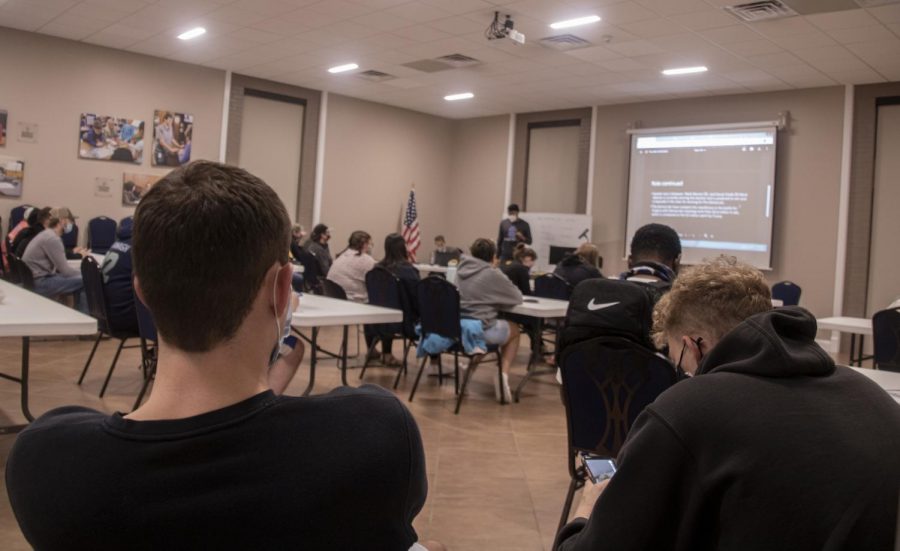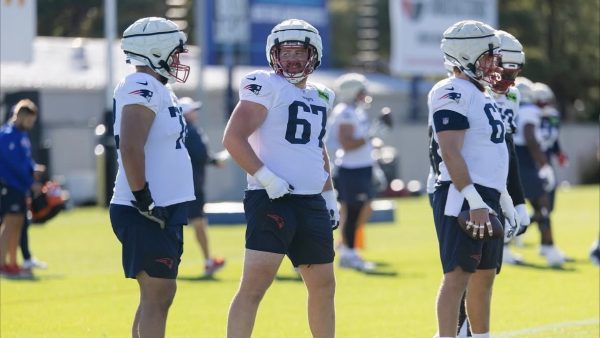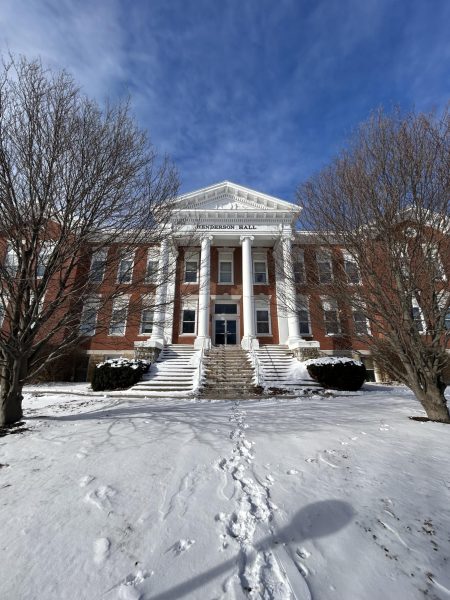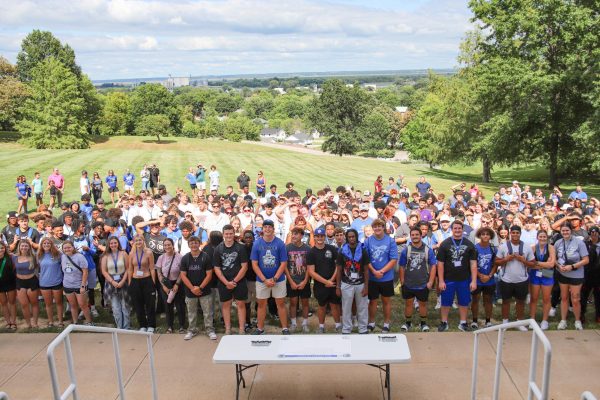The Election Series Comes to A Close
Final Event in Memorable Election Season
Students at the final election-watch party
The electoral process has dragged on at Culver-Stockton College and the election-watch series, hosted by Associate Professor of Political Science Chad DeWaard, wrapped up on the night of Nov. 3.
Students of an election-focused class gave presentations of their research on different swing states and offered predictions for the 2020 race. Some states, such as Iowa, seem to have fallen across unexpected lines, going as students predicted; other states such as Michigan have flipped from the predictions offered. Following the main event, students were dismissed to the Crown Center cafeteria, where they spent a half hour past it watching election results roll in.
The event seemed to draw more students than the previous debates. Casey Downs, a senior communications major remarked, “We got [to eat] wings, and even watched the election, that’s even better.”
However, it seemed there was less focused interest in the event than the reveal of the electoral map. Those students more engaged in the conversation seemed to expect Trump to win, even before the display of the electoral map and its forecasted “red mirage.” Once the map was revealed, Biden held a clear lead through the night, in the popular vote, and delegate count. However, not everyone seemed to have strong feelings about the election. Alexander Berk, a freshman in accounting and finance simply stated, “I don’t know what to say.”
President Trump appeared to declare victory at 1:29 am CST on Nov. 4, but Vice President Mike Pence rapidly darted in to “unpack” the president’s remarks. President Trump bandied about the wins of Florida and Texas as if the GOP strongholds were victories, rather than the narrow races that the states had come in as. Joe Biden, however, seemed to largely remain out of the public eye on election night . During his appearance in the small hours of the morning, President Trump was running behind Biden in both the popular vote and the electoral college, and few of the states in which he appeared to claim victory had been called.
Despite the still-unclear results at the national level, Missouri’s elections were in much less doubt. Amendment 3 passed, stripping the redistricting commission passed by the Clean Missouri Amendment of 2018 of its independence, and instead making the positions into gubernatorial appointees. It also banned lobbyist gifts, previously set at a maximum of $5. Unsurprisingly for the deeply red state, Governor Eric Greitens has maintained his seat. Perhaps the most interesting race on the national level was that of Cori Bush in Missouri’s St. Louis based 1st District, who unseated incumbent Lacy Clay in the primaries earlier this year. Clay and his father before him had held the seat since 1969. Bush is a Justice Democrat, who initially ran for office in 2018 alongside Alexandria Ocasio Cortez and other members of the group of freshmen representatives known colloquially as “the squad.” With her close ties to the group, Bush may rise to a similar prominence in the legislature of 2021.






